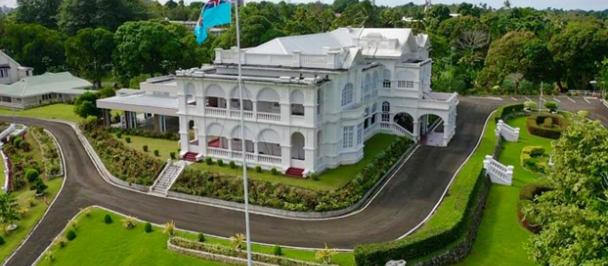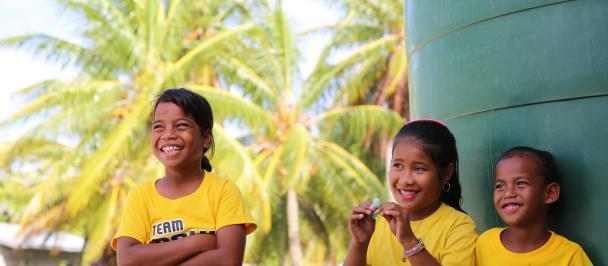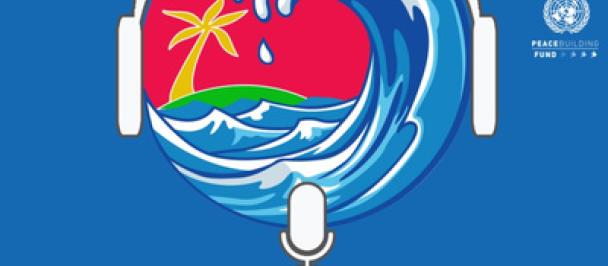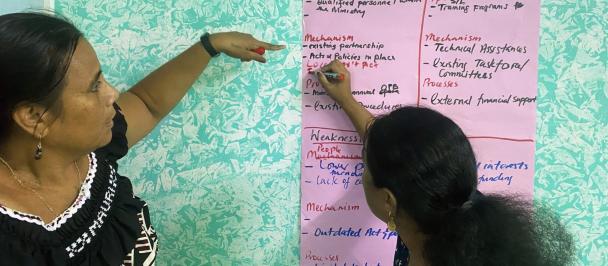Ensuring a climate-secure future in Tuvalu: Food cubes initiative on Nui Island
January 18, 2023

Airin Carlton, 42, is a mother of five living on Nui, a small island in the north of Tuvalu. Like many people in her community, she faces daily challenges due to the impacts of climate change. Rising sea, king tides, and frequent and intense cyclones make it difficult to grow crops and not only affect food security, but also threaten the human security of the community.

Airin lives in the coastal area of Nui Island, Tuvalu.
Honestly, I am afraid of climate change. Nui is a flat island, and anytime during cyclones and king tides, the sea comes inside and destroys everything on the island. We are not safe; we are not secure.”
During Tropical Cyclone Tino in 2020, Airin witnessed the flooding of the lagoon. As she used to live in the coastal area at the end of the island, she saw the water coming inside in only a few hours. “I was with my husband trying to save our stuff, we were scared. Luckily my children already evacuated into the inland area of the island.”
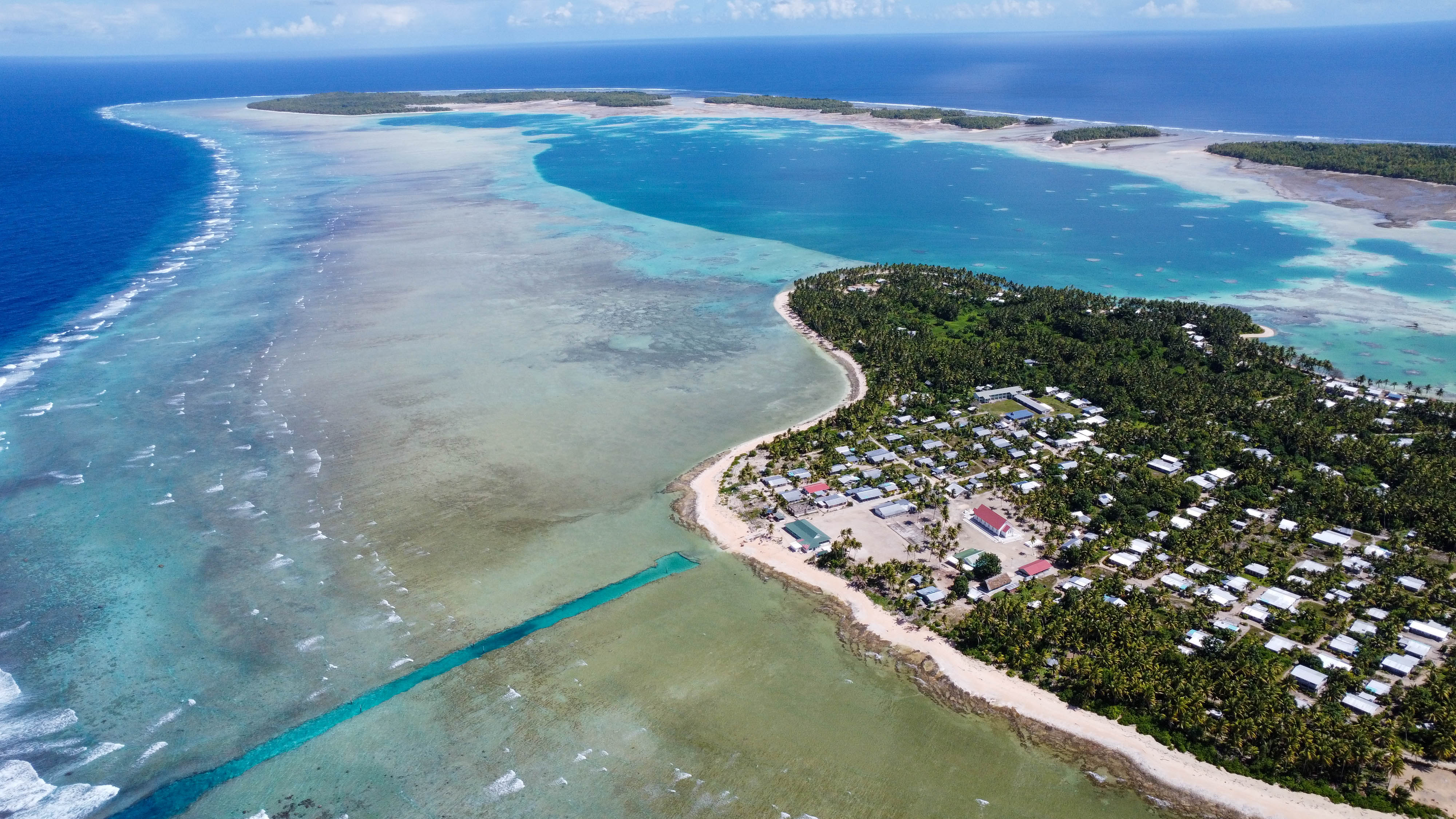
Aerial view of Nui and its lagoon.
“I often think about my kids and their future. Are they going to be safe? What’s their future?”
To address climate-related security challenges, the joint IOM-UNDP Climate Security in the Pacific project, funded by the UN Peace Building Fund, is implementing the food cubes initiative. Identified by the local community after conducting inclusive consultations, the initiative aims at improving food security in the face of increasing climate change challenges by providing a climate-resilient technique to grow short-term crops.

The food cubes were transported and installed on Nui Island.
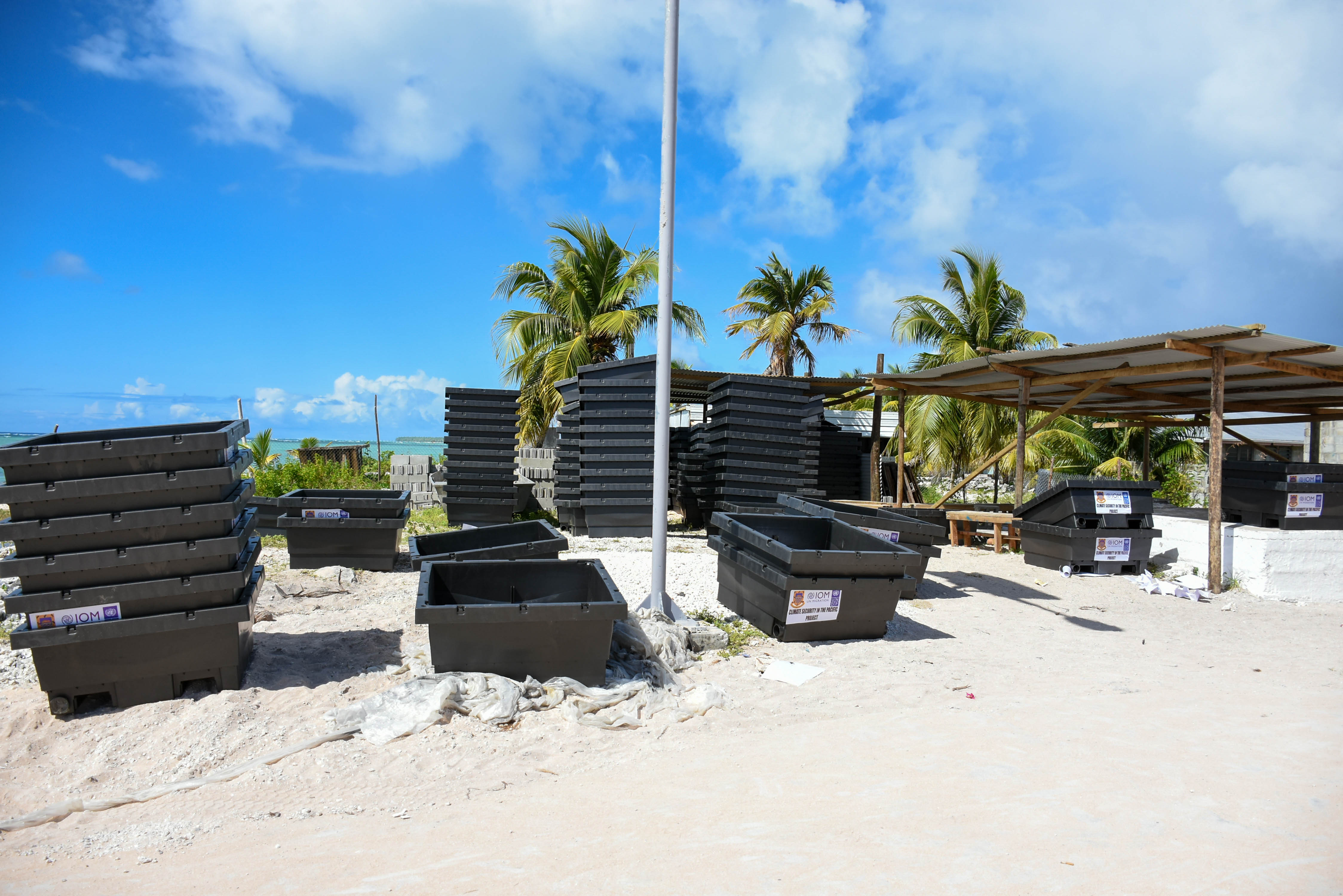
The food cubes were transported and installed on Nui Island.
The initiative is an example of how a bottom-up and participatory approach can allow for sustainable and long-term results. The project worked not only with the local community, but also closely collaborated with the Government of Tuvalu, especially the Climate Change Department and the Agriculture Department.
According to Sama Sapakuka, 33, who is the Principal Agroforestry Officer at the Tuvalu Agriculture Department, the food cubes have been a successful practice in other islands of Tuvalu, such as Nukulaelae and Funafuti, where communities were able to grow vegetables and crops and improve their food security.
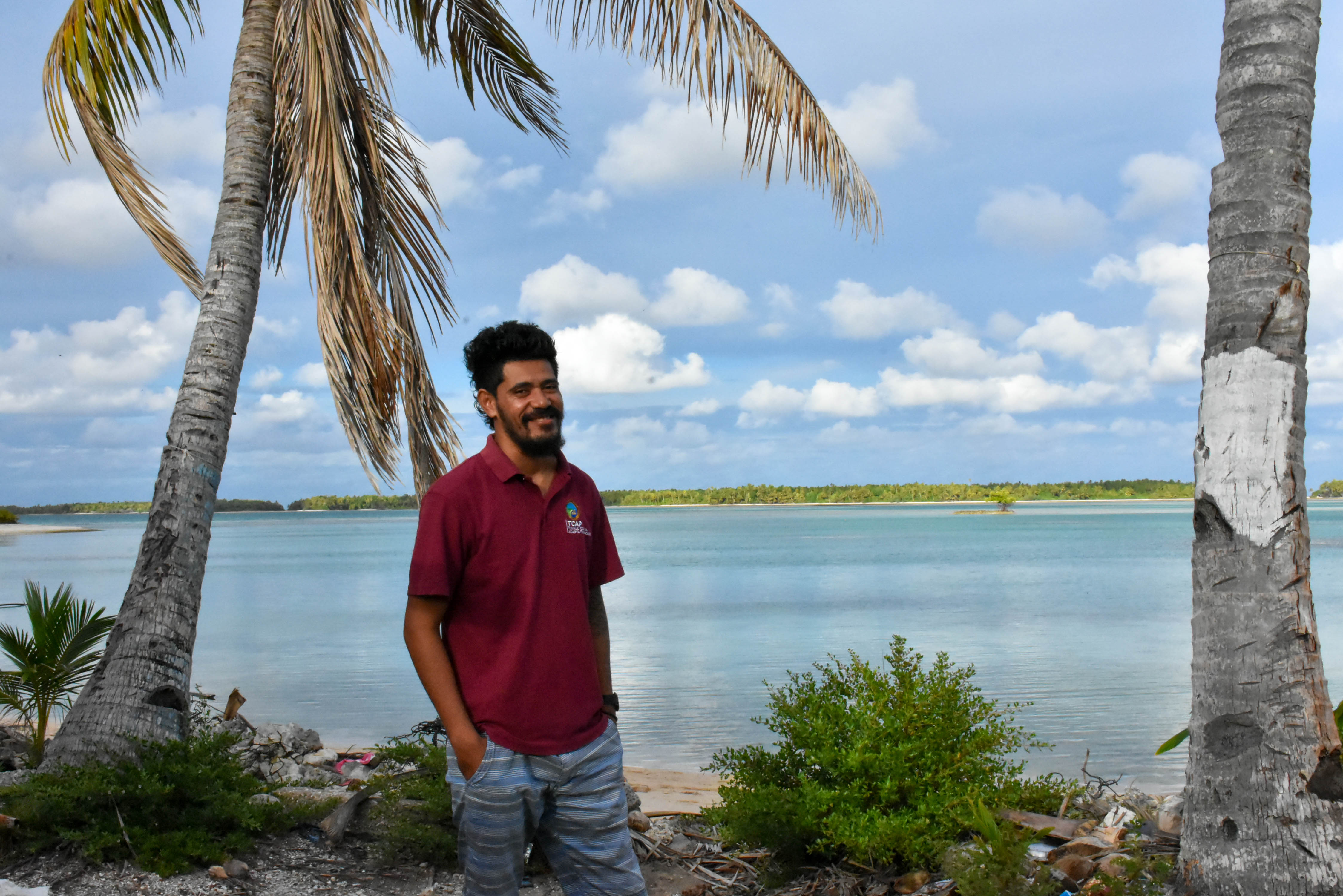
Sama Sapakuka, Principal Agroforestry Officer at the Tuvalu Agriculture Department.
“The soil is poor in Tuvalu, so it is much easier to grow with the food cubes, which also allow to save water. In addition, they represent a convenient solution considering the increasing coastal erosion and saltwater intrusion, as well as their relatively easy portability during cyclones and extreme weather events”.

The land in Nui, like in all Tuvalu’s islands, is limited and it is becoming increasing difficult to cultivate due to the impacts of climate change.
The food cubes are also very important as they represent a solution for land issues. In Tuvalu, the land, which is more and more limited due to climate change, is shared among community members and cannot be used without permission. Food cubes therefore, allow community members to grow crops without affecting land properties.
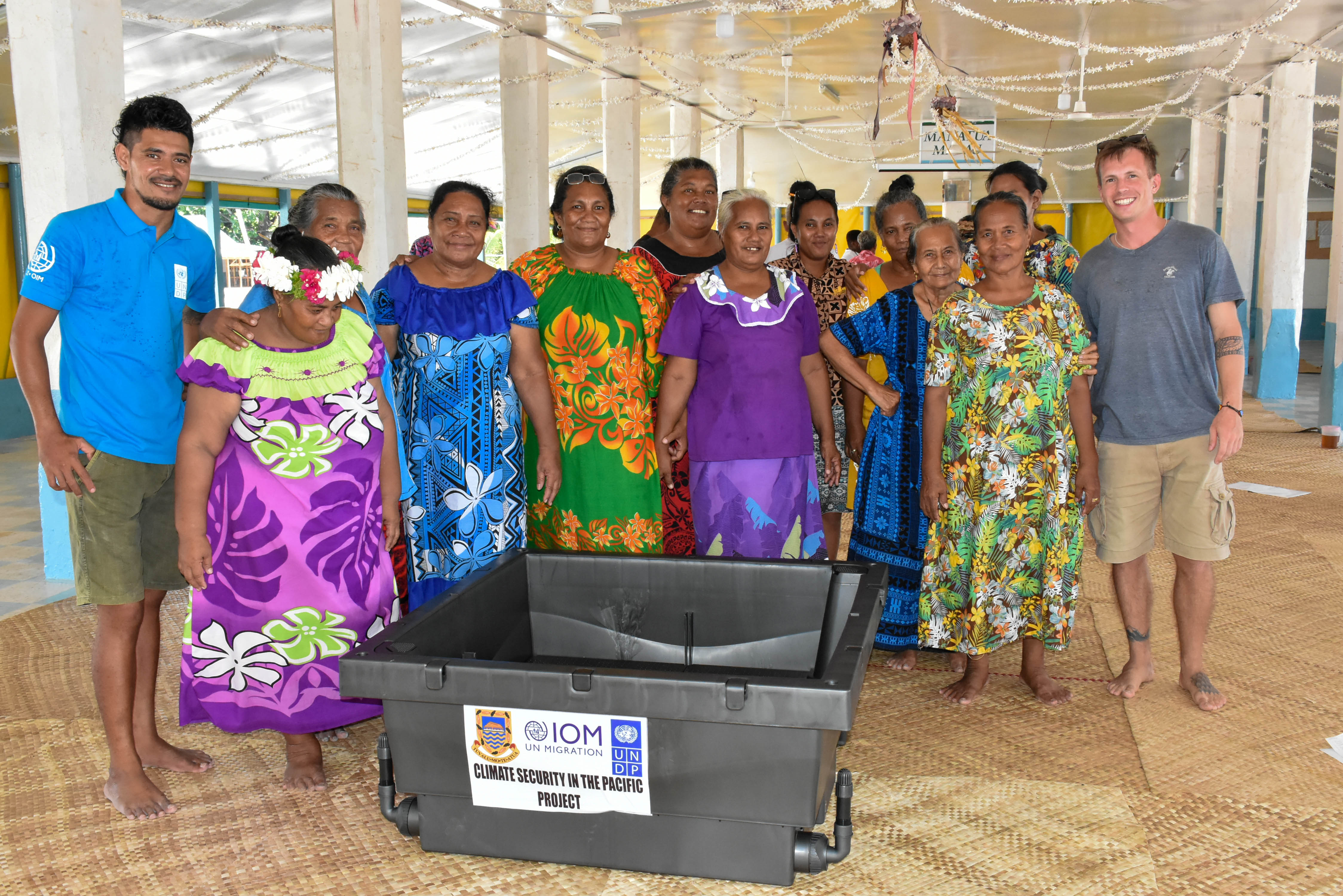
The community can benefit from the food cubes, as they allow to grow crops without affecting land properties.
The increasing population, coupled with the pressures from climate change and limited availability of land, is increasing conflicts and tensions, also threatening the social cohesion of Tuvaluan communities. The food cubes initiative will therefore reduce those increasing tensions and will help to build peace and security.
The Agriculture Department provided training to the community on the use of food cubes, which helped to ensure that the community was able to make the most of the initiative and ensure its sustainability in the long term. Community members were aware the initiative had been designed specifically to meet their needs and that they had an important role to play in its success.

The community in Nui had the opportunity to attend the training and learn the benefits and use of the food cubes.

The community in Nui had the opportunity to attend the training and learn the benefits and use of the food cubes.
When receiving her food cubes, Airin was overjoyed of having the possibility to provide a reliable source of nutrition for her family and help alleviate some of the stress and tension that come with climate change. She knew this initiative would make a real difference for her and in the lives of her fellow community members, and she was thankful for the support provided.
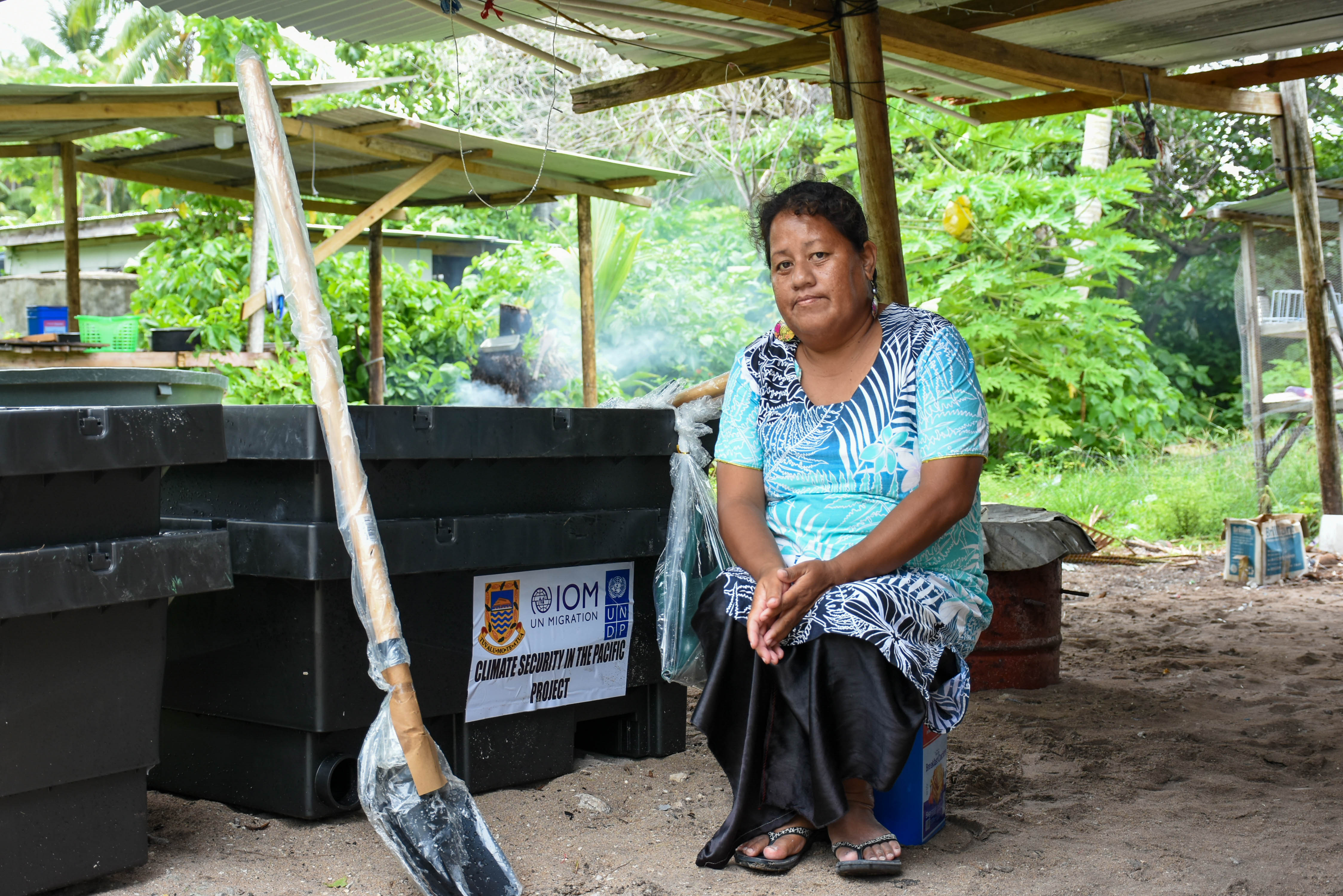
Thanks to the food cubes initiative, Airin and her family will have the opportunity to cultivate fresh and healthy products.
“Personally, I think that the initiative is very important, as it will benefit our community in terms of food security and health. I also hope that it will help the people who are not working, as food cubes are a great opportunity to sell vegetables and assist our Government and businesses in Funafuti with the production of crops and vegetables. I am looking forward and excited to start my home gardening using the food cubes, so I can provide fresh and healthy food to my family.”
As the Tuvaluan traditional farming system (pulaka pits) is challenged due to sea level rise, increasing droughts, increasing population and diminishing land, food cubes can provide sustainable food security in the long term.

The traditional pulaka pits are located next to the lagoon, and are therefore at risk of being intruded with salt water or destroyed by extreme weather events.
Furthermore, to ensure the ownership and sustainability of the initiative, the Nui island community signed a Memorandum of Understanding with the Climate Change Department, which outlined the support of the government and the responsibility of the local community to sustain the food cubes pilot initiative even after the project’s lifetime.
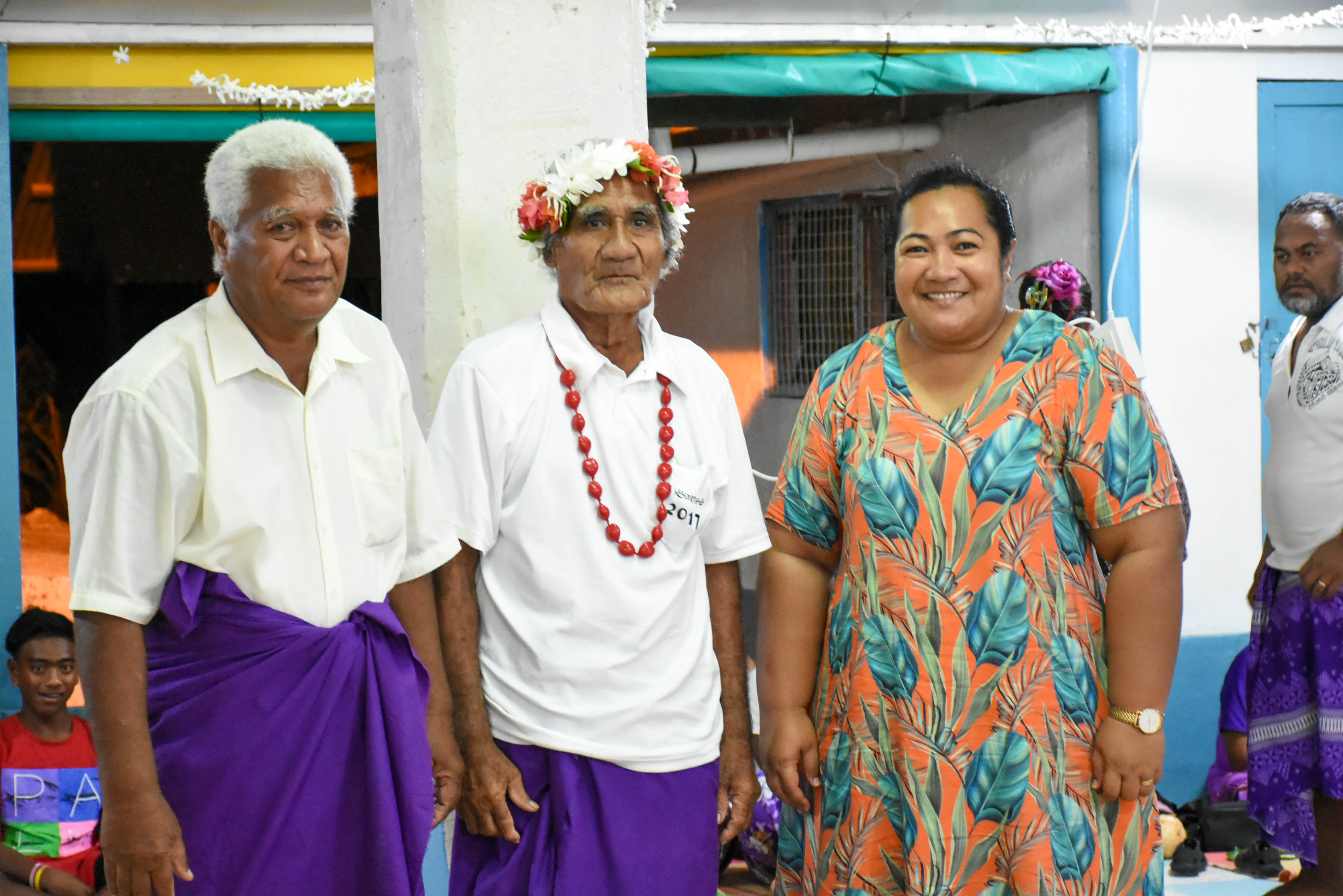

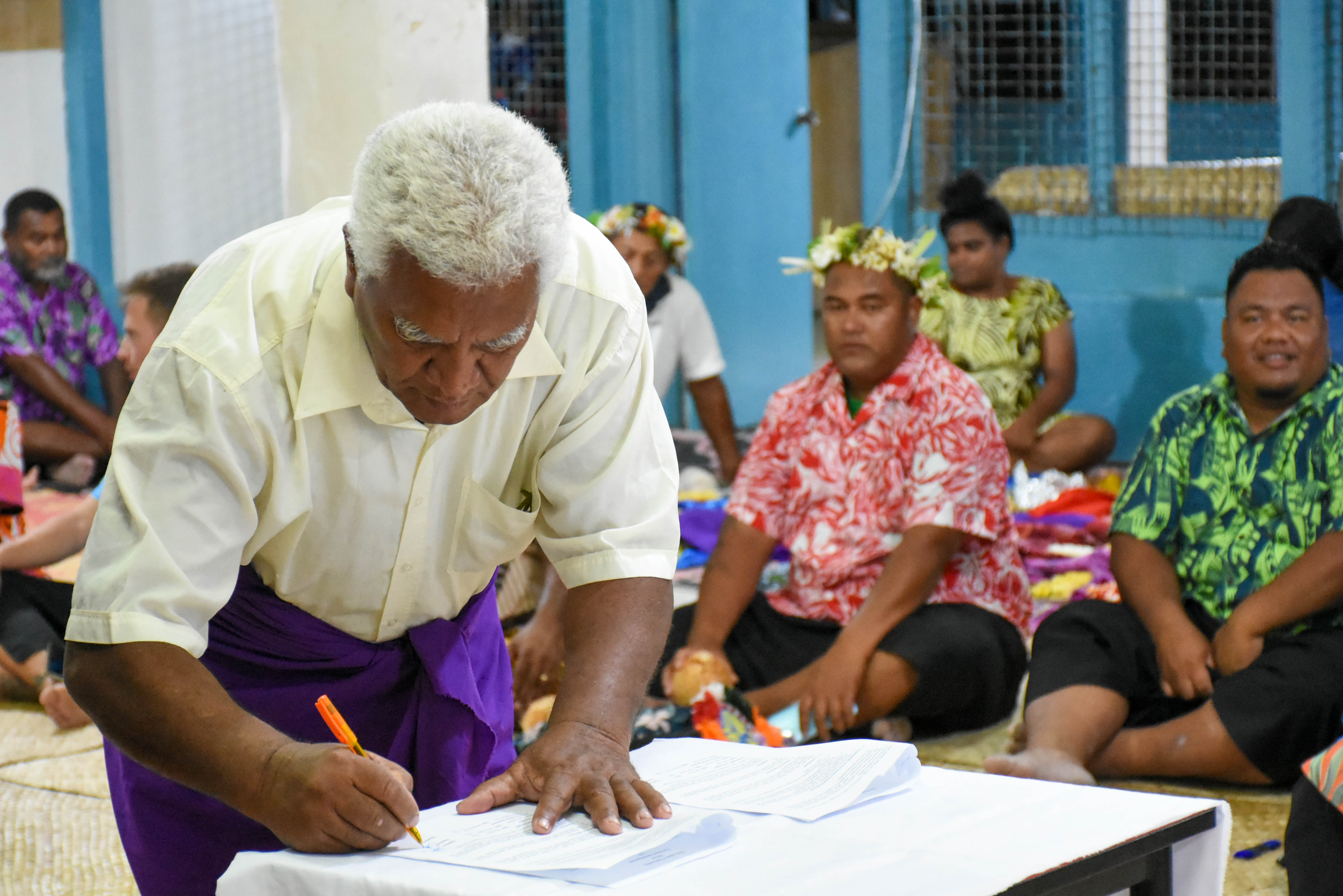
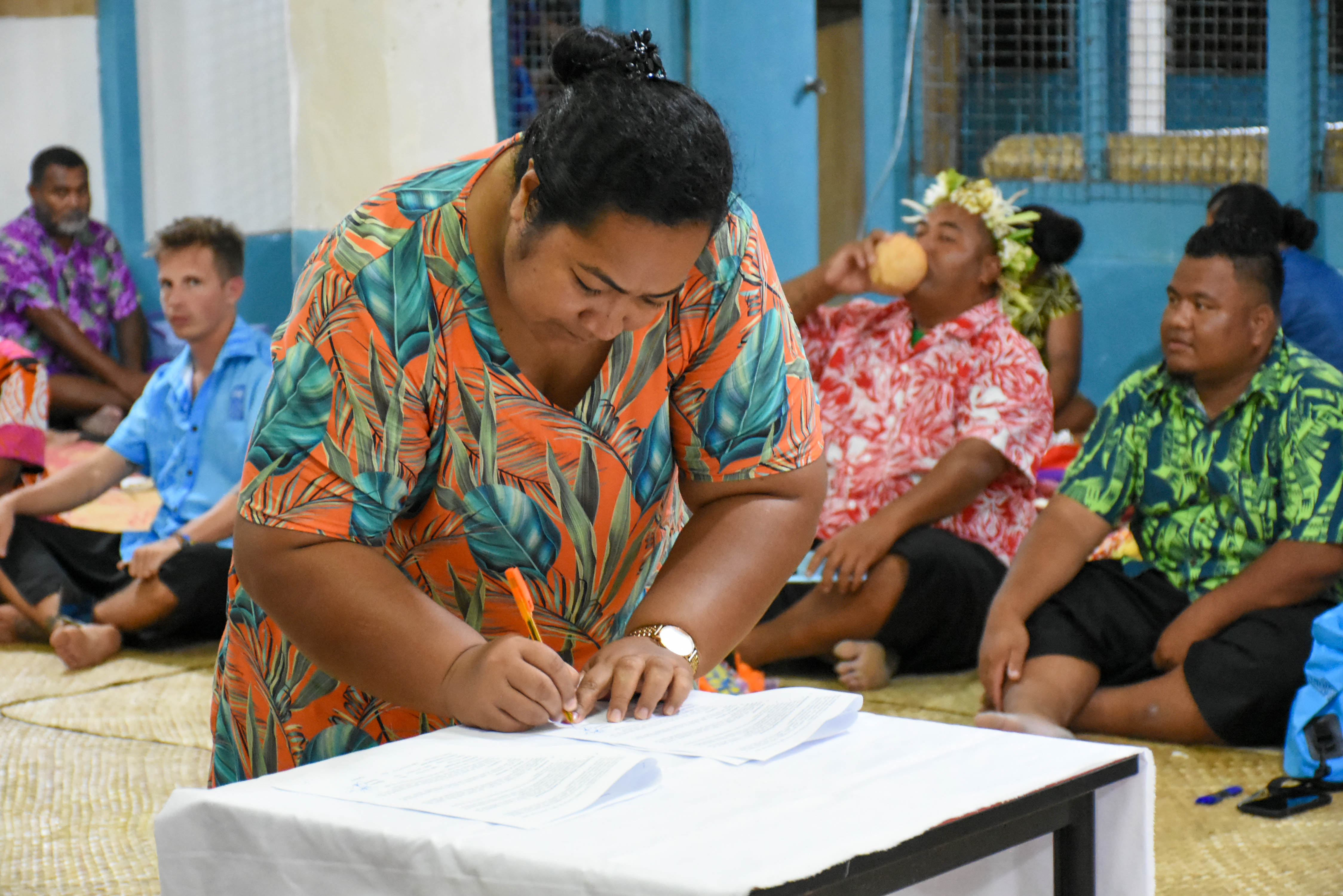
The Supreme Chief of Nui Island Mr Uele Paape, the Nui Kaupule Mr. Taom Tanukale and the Climate Change Department Director Ms Pepetua Latasi signed the Memorandum of Understanding.
With the support of the Climate Security in the Pacific project, Nui community members will be better equipped to weather the challenges of climate change and build a brighter future for themselves and their children.
The Climate Security in the Pacific project is funded by the UN Secretary-General’s Peacebuilding Fund and implemented by the UN Development Programme and the International Organization for Migration in partnership with the Government of Tuvalu.
---
For more information, contact:
Giulio Fabris, Climate Security Project - Communications and Advocacy Specialist, UNDP Pacific Office in Fiji; email: giulio.fabris@undp.org;

 Locations
Locations